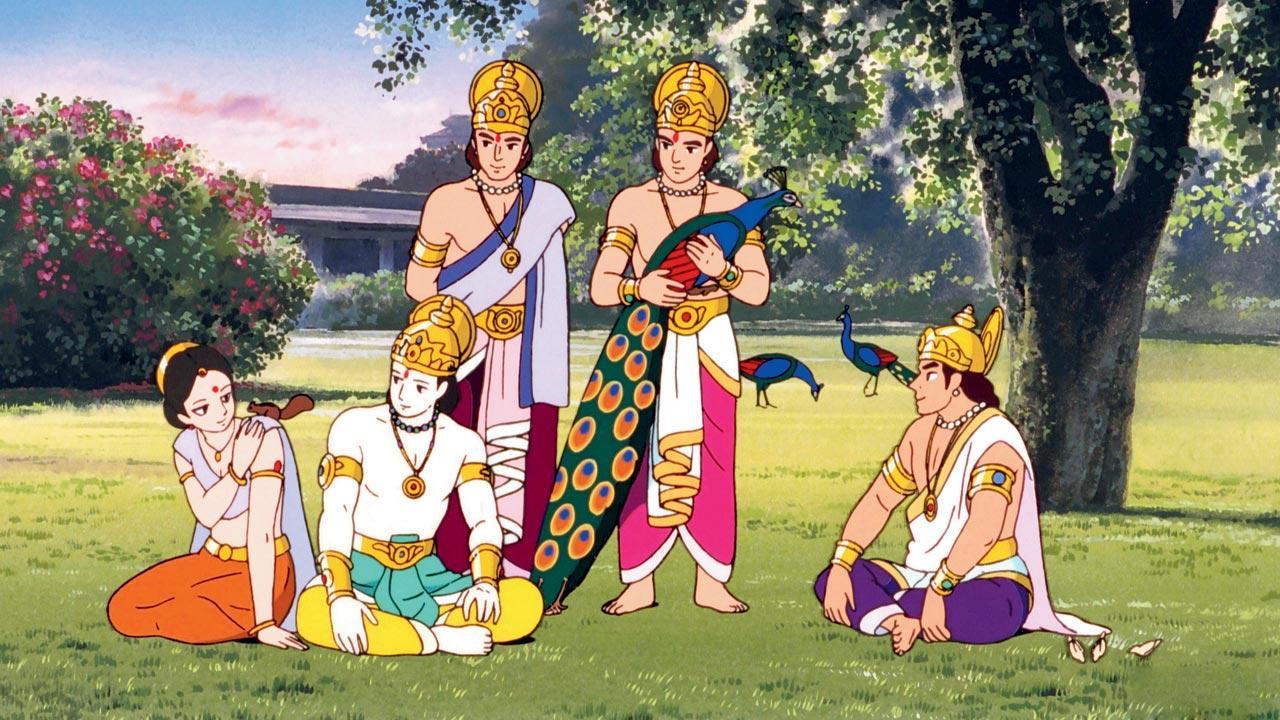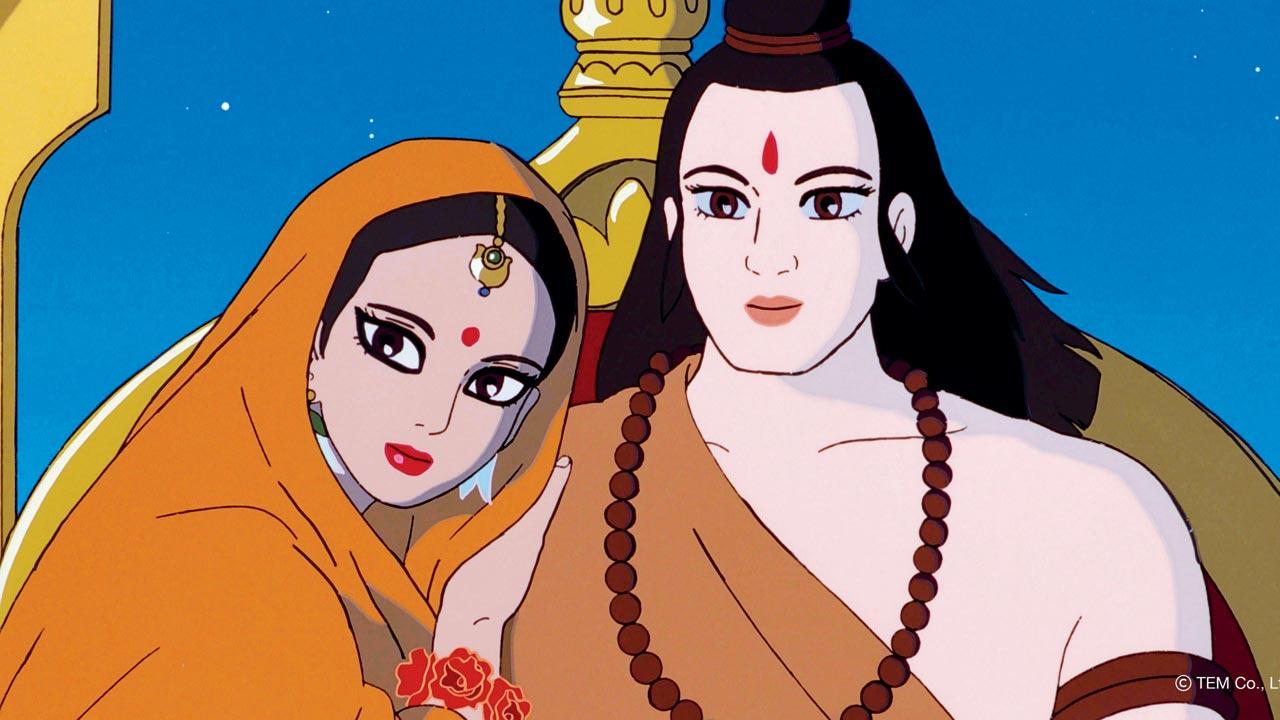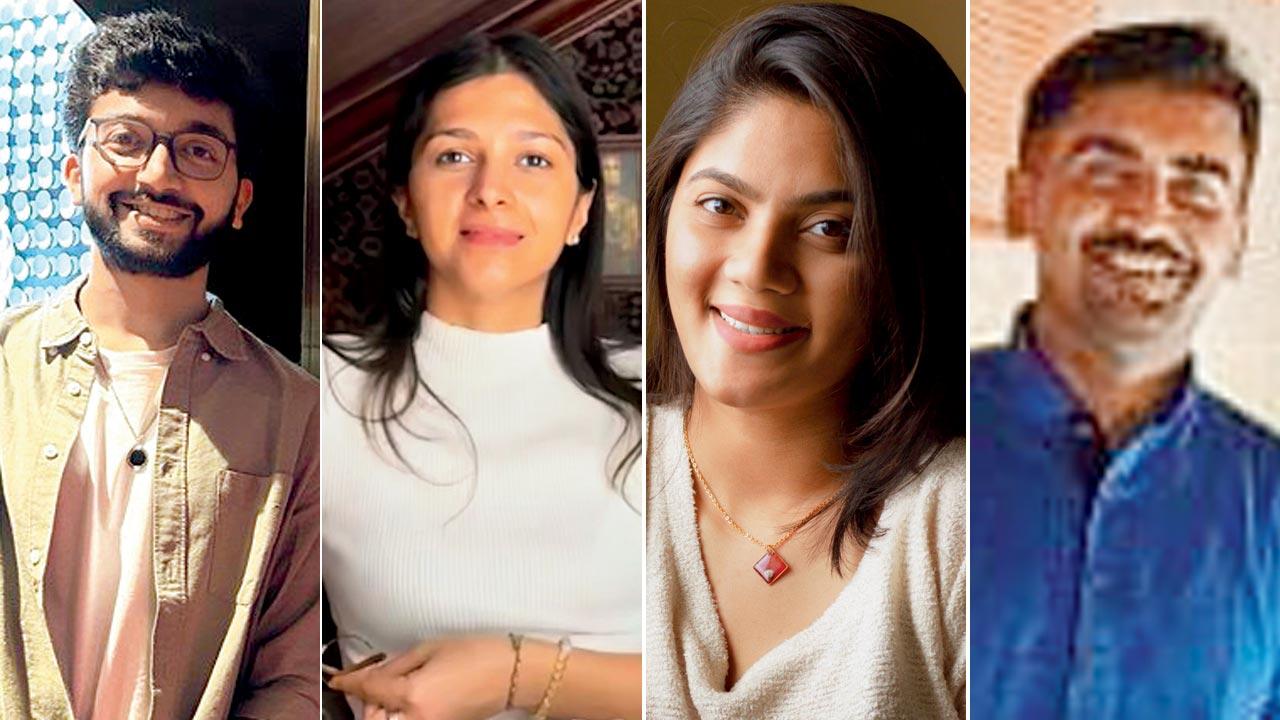The anime adaptation of Ramayana, which millennials grew up watching on TV, will hit theatres for the first time. Are fans excited?

Filmmaker Yugo Sak0 chose hand-drawn animation for the film, with each of the one lakh frames drawn by a team of 450 artists
“I remember watching it as a kid, more than 20 years ago on TV, and I loved it,” says Mrunal Mehta, a graphic designer. Ramayana: The Legend of Prince Rama, an anime adaptation of Valmiki’s epic was perhaps India’s first exposure to anime. The film released in 1993, but in limited theatres for a short span of time; even in Japan. Later, in the early 2000s, a Hindi version of the film was cut into episodes for television.
ADVERTISEMENT
The adults had Ramanand Sagar’s Ramayana and its fair share of re-runs, and children of that generation were glued to Cartoon Network every week in anticipation.

Now, Geek Pictures India is re-releasing a re-mastered version on October 18 in theatres. Directed by Yûgô Sakô, Koichi Saski, and the father of Indian animation Ram Mohan, the film’s budget was a whopping $6.7 million and was co-produced by India and Japan. It was created because Sakô was working on a documentary titled The Ramayana Relics in 1983. He fell in love with the epic, and wanted to adapt it into an animation to capture its essence.
Work on the film began around 1990, and Indian and Japanese artists worked together to bring it to life. The animation for the film was hand-drawn, frame by frame, by 450 artists. Indian animators would send the hand-drawn animations to the Japanese studio via courier. “Back then,” says Kavin Panchal, a businessman, “I did not watch it for the animation. It piqued my interest in religion and made it more fun. As a kid, animation felt more real; the serials felt unreal with the make-up. Which kids would want to watch serials?” Particularly, the animation vanar sena were more believable than actors wearing monkey masks. Mehta adds, “I had heard the story of Ramayana from my parents, but the anime filled many gaps.”
 Kshitiz Srivastava, Moksha Modgill, Mrunal Mehta and Kavin Panchal
Kshitiz Srivastava, Moksha Modgill, Mrunal Mehta and Kavin Panchal
Speaking on what spurred the re-release, Moksha Modgill, CEO of Geek Pictures India says, “There is a growing appreciation for this form of art. India is opening up to anime in a big way. So, we wanted to bring it back for a new generation.” Anime is a unique form of art from Japan that combines graphic art, characterisation, cinematography, and other techniques. It has a massive appeal from kids to adults. According to Crunchyroll, an anime streaming platform, there are 30 million anime viewers in India and that number is expected to grow by 60 per cent by the end of 2024.
The beauty of Ramayana: The Legend of Prince Rama lies in its collaborative artwork. As it’s an Indian tale, the animation draws inspiration form Indian artistry as well. There’s a significant connect to nature, especially the animals and birds present throughout the film, depicted as seen in Indian art and carvings. “It was the first animation our generation saw; and it was the sincerest version of the artform,” says Kshitiz Srivastava, creative producer, Geek Pictures India.
The original English and the Hindi version was narrated by Shatrughan Sinha, with Arun Govil speaking as Rama, Namrata Sawhney as Sita, and Amrish Puri as Ravana; the re-release has also been dubbed in Telugu and Tamil. Modgill says, “Screenplay writer V Vijayendra Prasad [of RRR and Baahubali fame] has worked on the Telugu and Tamil text, and has helped us reimagine the film for a new generation.”
The recent trend of re-releasing films, banking on nostalgia, is also gaining momentum. Films like Rockstar and Laila Majnu surpassed box office numbers of new films released the same week. Tumbbad surpassed its original box office collections. Will anime Ramayana do the same? Only time will tell; but the film does have nostalgia, a growing anime fan base, and a tale most Indians love to re-watch, all working in its favour.
Panchal adds, “I am excited for the next generation of kids in my family to watch it. It will be quite a fulfilling moment. In fact, I told my sister-in-law about the re-release, and my nephew wants to go see the film with his parents, grandfather, my mom, and me in tow.”
 Subscribe today by clicking the link and stay updated with the latest news!" Click here!
Subscribe today by clicking the link and stay updated with the latest news!" Click here!







